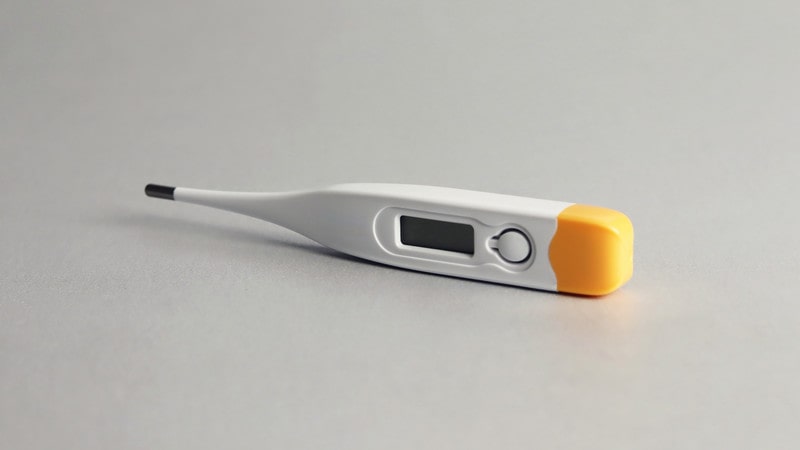Getting a fever is the worst. You feel tired, shaky, and disoriented, and despite burning up, you can’t seem to get warm. However, what if you’re experiencing the opposite? Instead of having an elevated body temperature, your body temperature is below normal?
Before going on Web MD to hastily self-diagnose, let me educate you on how body temperature works. Keep reading as we break down the basics of fever and a normal body temperature range to answer your most burning question — is 96 a normal temperature?
What Is the Average Body Temperature?

Is 96°F normal for humans? Before answering that question, let’s first explore the basics of body temperature. In simple terms, human body temperature is the heat our bodies generate to keep ourselves warm. Because humans are warm-blooded mammals, our bodies come naturally equipped with an in-built system for thermoregulation.
What this means is that our central nervous system works tirelessly to keep our temperature within a ‘normal range,’ optimal for day-to-day functioning. Generally, most healthy adults have a body temperature that ranges between 97°F to 99°F. Babies and young children generally have a higher range, between 97.9°F to 100.4°F.
It’s absolutely normal for the body’s temperature to fluctuate within that range throughout the day. The only time body temp will spike is when the body encounters an infection and turns up the heat to kill the invader.
Is 96 a Normal Temperature?
So, as you can see from the above-listed averages, 96°F is slightly below what is considered a normal range. However, that isn’t always a cause for concern, especially if you’re older. Recent research shows that it’s normal for healthy older adults to have a body temperature anywhere between 94°F to 99.6°F, with the average clocking at 97.7°F.
This drop can occur due to a slower metabolism, hypertension medication, or fat loss that happens as a consequence of age.
Why Is Your Body Temperature Lower? 4 Possible Reasons

Put simply, getting older means you get colder. However, what if your body temp is 96, but you don’t qualify for the early bird special?
Despite being slightly below average, some healthy adults can still experience a lower body temp due to several different factors:
• The type of food you’ve recently eaten — Eating food increases your metabolic rate, as your body works harder to digest the meal. However, if the food you’ve eaten was iced, then your body temperature can temporarily drop.
• Your activity level — Exercise directly increases the body’s metabolic rate. That, in turn, causes an increase in body temperature as your body warms up to burn more calories. So if you’re generally sedentary, it’s not uncommon for you to have a low body temp.
• Your menstrual cycle — For women, the menstrual cycle can cause mood changes, weight gain, and temperature fluctuations.
• Your sex — Sex hormones play a huge role in body temperature overall. For the most part, women tend to have a higher body temperature than men. However, this only applies to core body temperature. Since our perception of body temp depends on the skin, women tend to feel colder overall.
• The time of day — Believe it or not, the simplest reason for temperature fluctuations is what time of day it is. On average, the body’s temperature tends to be slightly lower in the morning and increases in the evening as the body prepares for sleep.
Should You See the Doctor?
Though it’s slightly lower than the average, 96°F is considered within the normal range for a lot of people. However, if you’re also experiencing other symptoms alongside a lower body temperature, then something more serious may be happening.
Things like headaches, fatigue, slurred speech, and mental changes can be signs of an underlying condition, such as hypothyroidism or hypothermia. In more serious cases, chronically low body temp may be a result of sepsis, Parkinson’s disease, stroke, or diabetes.
In any case, if you experience chronically low body temperature, it’s best to immediately consult your doctor to make sure everything is in order.



